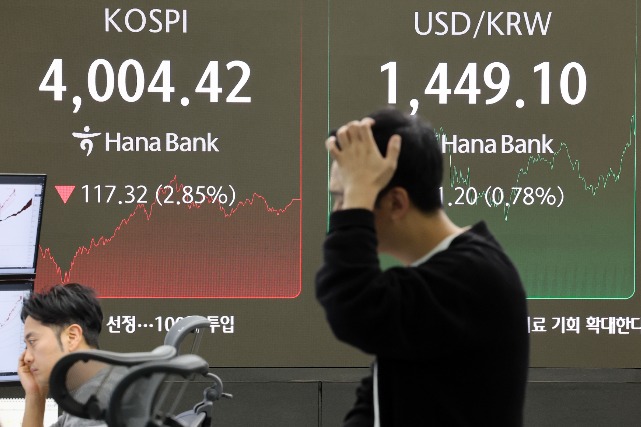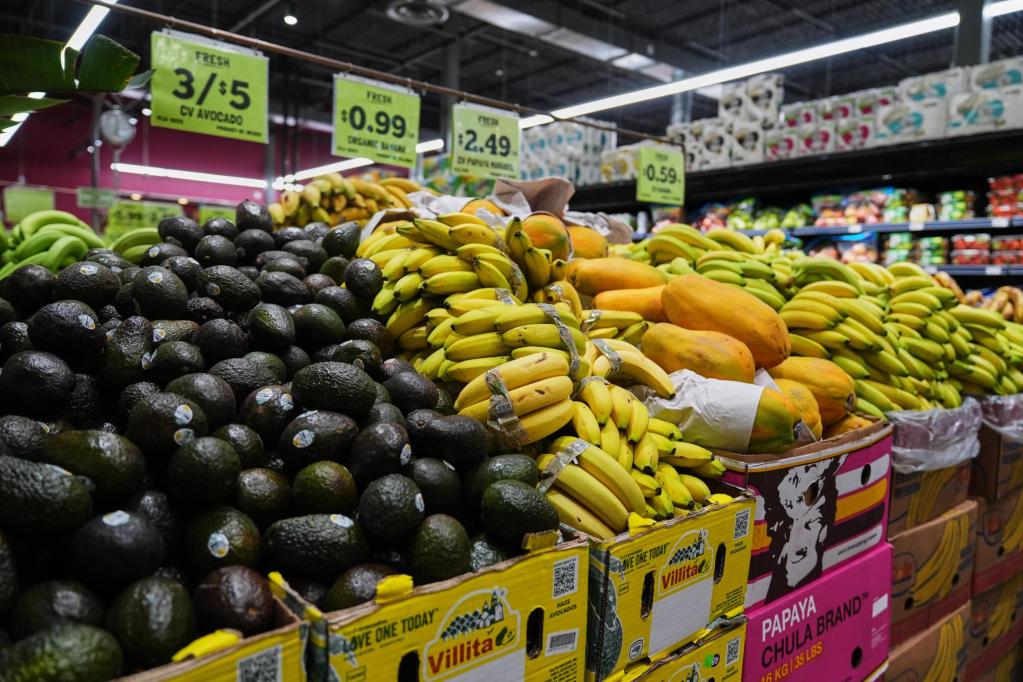BREAKING: South Korea’s Kospi index has plunged 2.9% to close at 4,004.42 on November 5, 2025, marking its steepest drop in three months amid growing fears of an artificial intelligence bubble. This sudden downturn comes after weeks of unprecedented gains, making it the world’s best-performing major stock index this year.
The benchmark Kospi experienced extreme volatility, sinking as much as 6.2% intraday, which triggered a sell-side circuit breaker designed to halt panic selling for five minutes. This marks the largest one-day decline since August 1, when investors reacted negatively to a government tax reform plan.
In tandem, the Kosdaq index also lost 2.7% to close at 901.89. Notably, this is the first time since August 5, 2024, that both the Kospi and Kosdaq indices triggered sidecar halts on the same day.
FOREIGN INVESTORS UNLOAD $1.7 BILLION: Foreign investors have sold off approximately 2.5 trillion won (around $1.7 billion) worth of Korean shares, leading to widespread sell-offs. This pullback is largely attributed to overnight declines in US chip and AI stocks, with notable drops from companies like Palantir and AMD despite their strong earnings reports.
As a result, Japan’s Nikkei 225 and Taiwan’s Taiex both fell over 1%, highlighting a broader retreat across Asia’s semiconductor-heavy markets.
“After the market zoomed about 20% last month alone, profit-taking was inevitable,” said Lee Han-young, head of equity investment at Vogo Fund Asset Management, describing the drop as “a natural correction within an extended bull run.”
The Korean won also weakened sharply, closing at 1,449.40 per US dollar, up 11.5 won from the previous day and briefly breaching 1,450 for the first time in seven months. This decline in the currency was primarily driven by heavy foreign outflows and a stronger US dollar.
RETAIL INVESTORS STEP IN: In a surprising turn, retail investors have aggressively stepped in to absorb the selling pressure, purchasing a net 2.6 trillion won in Kospi stocks. Their buying spree has focused on large-cap chipmakers like SK Hynix and Samsung Electronics, as well as companies such as Doosan Enerbility, LG CNS, Hanwha Solutions, and Naver Corp.
Over the past three sessions, individual investors have infused roughly 7 trillion won into domestic equities, reversing months of cautious behavior. Active retail accounts have surpassed 95 million, marking a 9% increase since the end of last year.
SHORT-SELLING HEIGHTENS VOLATILITY: Compounding the market’s fragility, short-selling activity has surged recently, with positions on the Kospi rising to 12.46 trillion won, a 9% increase in just one month. This has resulted in heightened volatility as more investors speculate on a potential pullback.
Notably, aggressive short-selling has occurred in biotech and clean-energy sectors, prompting the Korea Exchange to temporarily restrict short trades in certain stocks after trading volumes exceeded regulatory thresholds.
Despite the day’s turbulence, analysts largely view this correction as healthy rather than indicative of a structural downturn. With valuations stretched following a more than 60% surge in Korean equities this year, this market recalibration appears timely.
WHAT’S NEXT? Analysts remain optimistic, suggesting that current liquidity conditions and positive earnings forecasts for chipmakers will sustain the market’s bullish momentum. Lim Jeong-eun, an analyst at KB Securities, noted, “Today’s drop was driven by profit-taking and weakness in US tech stocks, but the Kospi remains in a clear bull-market zone.”
As the market digests these developments, investors are advised to stay vigilant for further fluctuations in both domestic and international markets.







